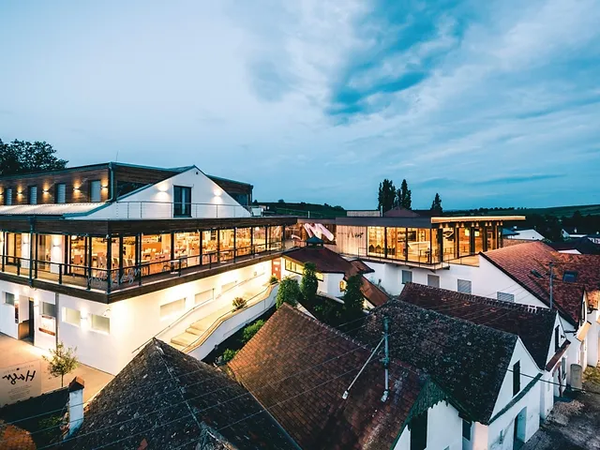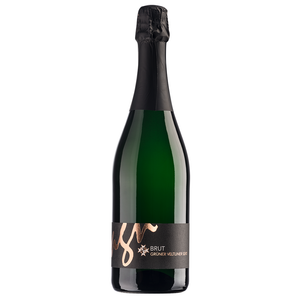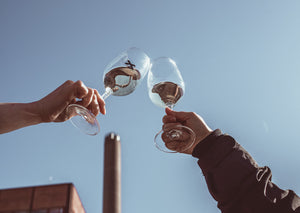
Hagn
The Hagn family has been growing wine in the Weinviertel region of Austria for 300 years. It's a real family farm, as its team includes up to eight Hagns, from the cellar master to the logistics manager. The long-term work for the wines has also brought the farm awards, as it has been chosen as the best winery in Niederösterreich up to seven times in 10 years! Since 2006, Leo Hagn Junior and Wolfgang Hagn Junior have been responsible for the wine production of the farm operating in the village of Mailberg. Wolfgang's wife Carina is in charge of the restaurant and inn that has been operating in connection with the winery since 2009. Wolfgang Senior and Leo Senior are also still involved in the operation of the farm, keeping an eye on the works of the younger generation. After the youngest generation stepped in, the farm has started to produce more modern wines that meet today's demand. This is indicated by the organic certification of all new wines, and although the share of organically certified wines is only around 10%, the aim is to increase the share in the next few years. The most important members of the team are also Emma and Rico, who act both as a welcome committee and as dogs responsible for the guests' safety.
Mailberg is known as the most important town in the Weinviertel, located in the sheltered Pulkautal valley. Vines thrive on the sunny slopes of the area, and wine has been cultivated in the area since 1140. Calcareous clay soil, sand and loess together with a sheltered microclimate create wines of several different varieties. In addition to Grüner Veltliner, Weinviertel is known as a producer of Chardonnay, Gelber Muskateller, Welschriesling and Sauvignon Blanc. Mailberg is sometimes called the red wine island, because Blauer Zweigelt also grows there.
Hagn's vineyard areas cover approximately 50 hectares. Since 2015, grapes have been cultivated using organic methods. Energy consumption is reduced with the help of our own solar cells, and biomass produces the heat energy needed on the farm. Own solar panels already produce 72% of the space's total energy needs. There are charging points for guests' electric cars, and the whole operation aims to reduce the energy footprint as much as possible. In particular, the new generation has taken environmental issues as an important part of the farm's operations, which we at Viinitie are particularly happy about.
From the production of 2024, the farm has the Sustainable Austria certificate.


